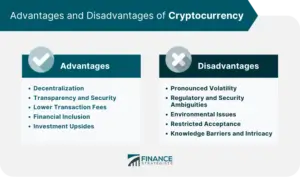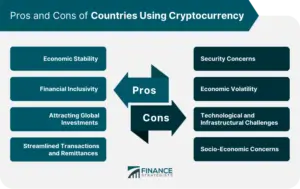Cryptocurrency in Pakistan: Is it Legal and How to Start?
Cryptocurrency in Pakistan: Is it Legal and How to Start?

**Description:** Discover the legal status of cryptocurrency in Pakistan and how you can get started in the digital currency market. Learn the steps for trading, investing, and securing your crypto assets.
Cryptocurrency in Pakistan: Is it Recognized by Law and How to Make a First Step?

The use of cryptocurrencies has changed the way the world commerce operates. Cryptocurrencies come into existence with the introduction of Bitcoin, Ethereum, and many other crypto coins for the interest of people and business across the globe. Pakistan is no different, as many tech-savvy investors and entrepreneurs are looking for such possibilities in this new economic arena.
The situation is a bit different though, as legal status of Cryptocurrency in Pakistan is still an ambiguous zone, common people find it really hard to find their way in this regard as well. Hence, this article will assess the current state of regulations regarding bitcoin and other crypto currencies in Pakistan, counsel on the steps to follow in order to engage in the business of cryptocurrency trading, and give reasons why such trading is not harmful.
The Legal Perspective on Cryptocurrency in Pakistan

The legal standing of virtual currencies such as cryptocurrency in the context of their regulation in the country of Pakistan is complicated and a bit ambiguous. The State Bank of Pakistan (SBP), the central bank of the country, has been apprehensive towards the prospects of cryptocurrencies. In April 2018, the SBP released a notice prohibiting Banks and Financial Institutions from carrying out activities involving virtual currencies including, but not limited to, Bitcoin and other such assets. This was done, in part, due to allegations of money laundering, financial scams, as well as the unstable nature of crypto economies.
The SBP’s prohibition, while restricting banks and other financial institutions, was not so broad as to touch on the issue of individuals participating in any form of ownership or trade of digital currencies. This presents a grey area especially for retail investors where legally, they can own and trade digital assets yet such pursuits come with the challenge of not having banking systems that allow for the transaction of such currencies.
Is It Permissible to Use Cryptocurrency for Personal Gain?

While the ban imposed by the State Bank of Pakistan restricts institutions from participating in cryptocurrencies, it does not legally prevent individuals from possessing or transacting in any cryptocurrency. In other words, while it is not officially confirmed or managed by any authority, there is no legally enshrined rule in Pakistan prohibiting a member of the public from owning or dealing in digital currencies. On the other hand, the absence of law means that an individual that engages in cryptocurrency trading does so entirely at his or her own risk.
Concerns about the cryptocurrency’s use in nefarious activities have also been reported by various government agencies including the Federal Investigation Agency (FIA). Thus crypto exchanges have faced occasional raids and investors have been issued advisories on the dangers inherent in cryptocurrency activities. However, such activity has not yet reached the level of legislative advances that would outlaw the holding or exchanging of cryptocurrencies by private citizens.
THE RISE OF CRYPTO CURRENCY IN PAKISTAN

Despite the vague legal structure, the demand for cryptocurrency in Pakistan has been on the rise. Several factors have fueled this demand.
1. “Financial Inclusion:”
Many Pakistanis, especially in the rural regions, do not have access to the conventional banking systems. This implies that cryptocurrency skirts with the use of banks in storing value and making transfers.
-
“Remittances.”
A good portion of the workforce in Pakistan is made of people who work outside the country and send funds back home. Such services use less cost completing the transfer by using the digital currencies.
-
“Investment Opportunities:”
The relative increase in the values of the digital currencies around the globe, with particular reference to bitcoin, has also drawn in some individuals who want to invest. Given the high appetite for risk and volatility associated with such undertakings, a number of Pakistanis are ready to step in and explore the ecosystem including crypto.
-
“Technological Growth:”
The youth in Pakistan are enthusiastic about cryptocurrency investments and blockchain technology, especially in cities like Karachi, Lahore, and Islamabad. Therefore, there has been an increase in online discussion boards, tutorials, and local private crypto trading within the country.
How Pakistanis Can Start Investing in Cryptocurrencies

In Pakistan, cryptocurrency investment is still relatively new, and those who want to use it need to take specific precautions. Here’s how to get started, step by step:
#### 1. Get Some Knowledge
Before starting to deal with cryptocurrencies, it is very important to know the technology, the risks, and the upside possibilities. Pick up information on the various kinds of offered currencies (like Bitcoin, Ethereum, or Litecoin) and their mechanisms as well as what affects the changes in their value.
2. Select an exchange. Cryptocurrency
A cryptocurrency exchange is a platform that allows you to buy, sell, and trade cryptocurrencies. This is due to the limitations of local financial institutions in Pakistan. You may have to rely on international exchanges. Here are some of the popular exchanges operating in Pakistan:

– **Binance**
– **Coinbase**
– **Local Bitcoin**
– **Full pack**
While selecting a trade Think about things like transaction fees. features for safety and the variety of cryptocurrencies that are offered.
3. Register and authenticate yourself.
Following your selection of a bitcoin exchange You must create an account. Usually, you have to supply your email address for this. making a password and going through the Know Your Customer (KYC) procedure, which involves proving your identity. To make sure that anti-money laundering (AML) laws are followed, this procedure is required.
-
Deposit Money.
You must fund your online trading account in order to buy digital currency.This method of payment includes direct money transfers, cards, and bank transfers.Using standard banking services may be challenging for you due to restrictions imposed by the State Bank of Pakistan.Some investors conduct transactions using peer-to-peer networks like LocalBitcoins or techniques like Tether.
-
Invest in cryptocurrencies.
As soon as your account is funded, you can start making cryptocurrency purchases.You can buy fractional amounts of money without having to buy the whole Ethereum or Bitcoin network.To put it simply, exchanges provide easy-to-use processes for buying products at market prices.
-
Safely Store Your Cryptocurrency.
Make sure you store your digital currency in a secure wallet after you’ve acquired it.Wallets are divided into two categories.
Easy Wallets: Virtual wallets that you may use from websites or applications. Although easy to use, these wallets are more susceptible to cyberattacks.
Cold wallets: By keeping your cryptocurrency offline and off of the internet, these offline wallets, like as hardware or paper ones, keep it safe. It is essential to keep your private keys confidential and ensure they are never given to anyone else. Losing your private key means losing access to your cryptocurrency. -
Monitor Your Financial Commitments.
A lot of sudden fluctuations frequently occur in the price of cryptocurrencies.Aim for definite outcomes whether purchasing, holding, or disposing of your assets. Pay close attention to your investments. I’ve shortened and clarified the text in order to make it simpler. I also eliminated the opening salutation. Market trends and the value of your portfolio are instantly tracked by numerous apps and platforms.
The Risks Associated with Cryptocurrency Trading
Although bitcoin traders have a lot of potential, it’s crucial to be aware of the risks, especially in a place like Pakistan where the legal framework is still growing.
###1. Volatility
The cryptocurrency market carries a lot of risk. Within hours, prices can see sharp fluctuations that could result in huge gains or losses. It’s imperative to invest wisely using money you can afford to lose and to refrain from acting impulsively based largely on short-term changes in the market.
#### 2. Absence of Rules
Investors are not safe in prison because Pakistan lacks a defined regulatory framework. Recuperating lost funds in the event of fraud, hackers, or disagreements may be difficult, if not impossible.
#### 3. Security Risks
Cryptocurrency exchanges and wallets are top goals for cybercriminals. Hacks and protection breaches have resulted inside the loss of thousands and thousands of greenbacks worth of crypto property. Always prioritize protection with the aid of enabling -element authentication (2FA) on your bills and storing your non-public keys in a secure area.
4.Potential for Government Crackdowns.
In Pakistan, it’s legal to own and trade cryptocurrencies, but the government might add tougher rules later.This could decrease the accessibility of cryptocurrency services or result in more intensive examination of crypto transactions.
###Pakistan’s bitcoin industry has a bright future ahead of it.

Kindly reword the following line to make it more succinct and clear without changing its main idea: The United States’ adoption of renewable energy sources has been greeted with a range ofIt’s possible that Pakistan’s emerging digital economy would heavily rely on Bitcoins and other digital currencies.
There are discussions about establishing legislation for virtual currencies, and the government is progressively realizing the importance of fintech.The central bank established a committee to investigate the potential applications of digital blockchain technology and cryptocurrency after a court ordered the government to regulate the industry in 2022.
It’s not certain when or how cryptocurrency law in Pakistan will change, but the rising interest from investors, tech fans, and the government shows that Pakistan is gradually accepting digital money.

Summary
Cryptocurrency In Pakistan it is gaining a legal foothold. But interest in cryptocurrencies is strong. This is despite the State Bank of Pakistan restricting financial institutions from holding digital currencies. But individuals can continue to own and trade cryptocurrencies. If you are considering getting started with cryptocurrency in Pakistan. It is important to train yourself. Choose a reliable exchange and take security measures to protect your investment.
As the world of cryptocurrencies develops, it’s critical to keep up with any modifications to laws or policies that might have an impact on Pakistan’s cryptocurrency sector. Investing in cryptocurrencies can present Pakistanis with new prospects in the realm of digital finance, provided they conduct adequate study and due diligence.
